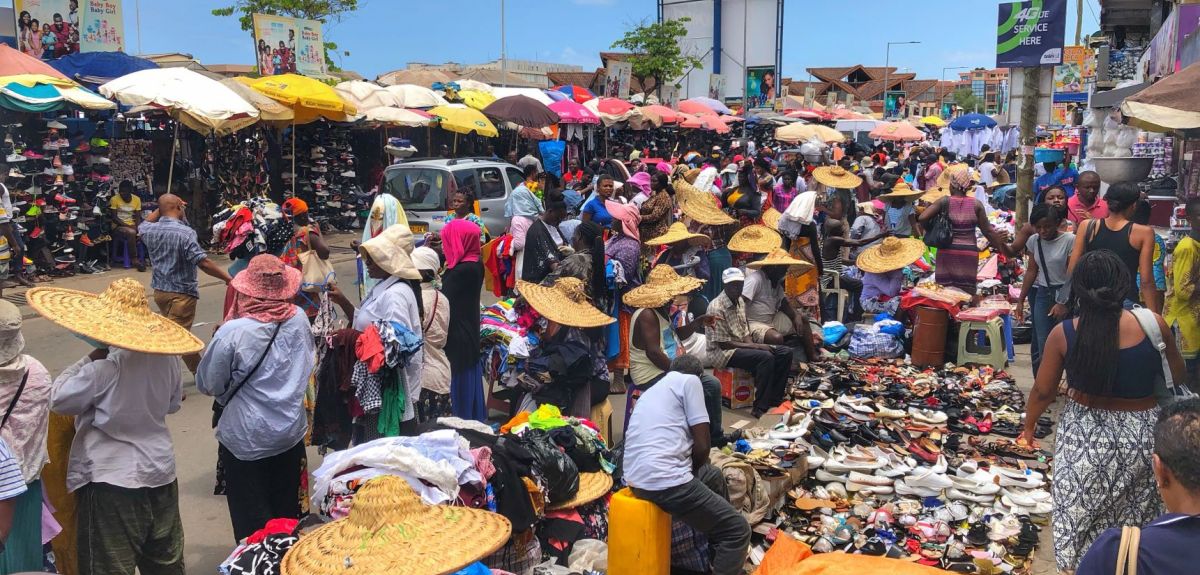
New joint Oxford-Wits project to study human mobility in Global South
The challenges and opportunities of human mobility in the Global South are the focus of a new project just launched by the University of Oxford and the University of the Witwatersrand, South Africa, in an innovative joint partnership.
The Mobility Governance Lab, jointly led by the Oxford Department of International Development (ODID) and the African Centre for Migration & Society (ACMS) in Johannesburg, will explore the ways in which populations, politics, and societies are increasingly defined by the movement of people – through displacement, long-distance emigration, urbanisation, and domestic and regional mobility.
Co-directed by Jean Pierre Misago at Wits and Loren B Landau at Oxford, the MGL will become a critical space working to offer constructive critique and research innovation, including through further partnerships. Its collaborative research is intended to offer original insights and perspectives to scholars, civil society, and practitioners while fostering the next generation of engaged researchers from Africa and beyond. At its core are efforts to mobilise that knowledge in ways that amplify the voices of scholars and communities often excluded from global debate.
The Mobility Governance Lab constitutes an innovative collaboration between Oxford and Wits...I am certain it will become a model for social science engagement
Professor Timothy Power
Professor Timothy Power, head of Oxford’s social sciences division, said, ‘The Mobility Governance Lab constitutes an innovative collaboration between Oxford and Wits as equal partners. I am certain it will become a model for social science engagement and will promote even deeper conversations around a research programme central to both universities. The Lab adds to the constellation of remarkable migration-related projects and initiatives already under way across the social sciences division.’
Professor Lynn Morris, Deputy Vice-Chancellor, Research and Innovation, at Wits, said: ‘Wits university is committed to playing a leading role in addressing historical disadvantages in the education of people across sub-Saharan Africa and elsewhere in the Global South. A partnership like the Mobility Governance Lab is part of realising that goal. It not only provides a platform and resources to African scholars, but will offer insights into global and local policy interventions that continue to disadvantage Africans seeking to better their lives by moving across countries and regions.’
Wits university is committed to playing a leading role in addressing historical disadvantages in the education of people across sub-Saharan Africa and elsewhere in the Global South. A partnership like the Mobility Governance Lab is part of realising that goal
Professor Lynn Morris
Meanwhile, Professor Diego Sánchez-Ancochea, Head of ODID, said, ‘By partnering with one of Africa’s leading universities – and perhaps its leading migration studies centre – MGL will bolster the quality and quantity of research on one of the most pressing issues of our times. Whether it is adapting to climate, combating inequality, accessing education, or simply finding safety, movement across the Global South is core to our collective futures.’
Dr Jo Vearey of ACMS added, ‘The MGL provides exciting opportunities for both established and early career researchers from Wits and Oxford to collectively – and creatively – develop an African-oriented and internationally relevant research agenda in the field of migration governance.
‘With an emphasis on building ethical and equitable research partnerships, and embedding support to the next generation of migration scholars, the MGL will contribute to the generation of new knowledge in a sustainable way.’
Already inviting participants for a December 2022 workshop on ‘Conceptualising Mobility Governance,’ the jointly managed initiative will provide a platform for exploring the governance of mobility at multiple scales across the Global South – from emergency relief measures to global governance frameworks; from municipal planning and zoning regulations, to gendered generational expectations, and other formal and informal mechanisms that inform aspirations, possibilities, and politics.
Those interested in following MGL can bookmark their website, or follow them on Twitter where you can learn more about participating in the December 2022 workshop. Questions can be directed to info@mobilitygovernancelab.org.
 Learning centre celebrates 10 years working with young people in Oxford
Learning centre celebrates 10 years working with young people in Oxford
 Expert Comment: The point of the pope. Why His Holiness matters (even if you’re not a Catholic)
Expert Comment: The point of the pope. Why His Holiness matters (even if you’re not a Catholic)
 Child heart disease found to be more likely if mother has anaemia during pregnancy
Child heart disease found to be more likely if mother has anaemia during pregnancy